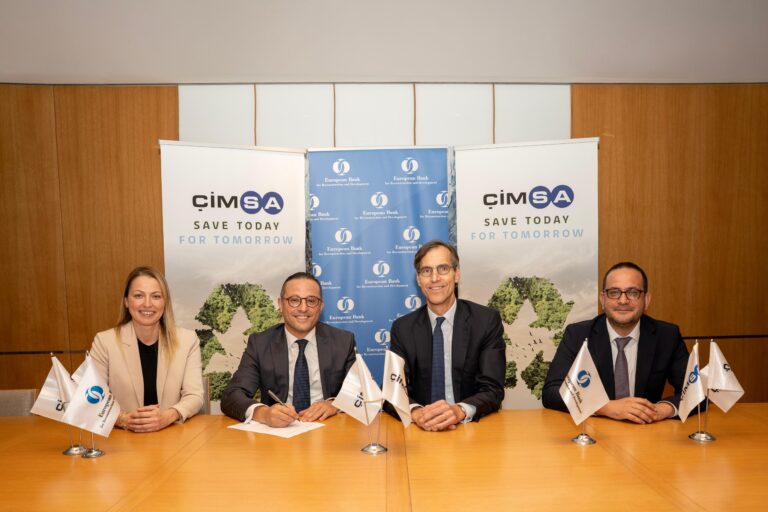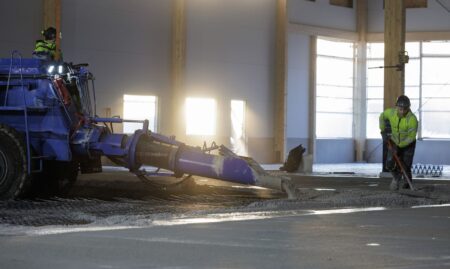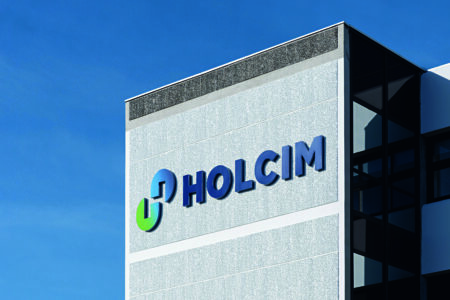The European Bank for Reconstruction and Development (EBRD), which has provided over €22 billion in financing in Türkiye since 2009, has signed a long-term €50 million green financing agreement with Çimsa. In 2024, EBRD had already extended €25 million in financing to Çimsa, marking the Bank’s first investment in Turkish cement industry.
The EBRD has allocated €50 million in green financing to support Çimsa’s sustainability-focused transformation investments. This financing will be used for green investment projects at Çimsa’s Mersin plant. The funding package covers a range of emission-reduction investments within the company’s comprehensive decarbonization program in Mersin, including the installation of a new Calcium Aluminate Cement (CAC) kiln as well as several emission-lowering upgrades to existing grey and white cement kilns.
Second Green Financing in the Last 1.5 Years
Today, Çimsa is one of the world’s three largest producers of CAC and continues to advance its global growth strategy in sustainable building materials with determination. CAC products play a significant role in the industry’s green transition thanks to their substantially lower carbon footprint compared to conventional grey cement.
In 2024, the EBRD provided €25 million in financing for decarbonization investments at Çimsa’s Eskişehir plant, marking its first-ever investment in Türkiye’s cement sector.
“Çimsa’s Exemplary Initiatives Contribute to Sectoral Development”
Erdem Yaşar, EBRD Deputy Head for Türkiye, shared the following remarks on the collaboration:
“I am very pleased to witness the growth of our partnership with Çimsa, one of the leading players in the industry. Through its exemplary initiatives, Çimsa not only strengthens its own competitiveness but also contributes to the development of the sector and the sustainability of our planet.”
Çimsa CEO Umut Zenar also commented on the partnership: “At Çimsa, we shape all our investments around principles of responsibility, efficiency, and long-term sustainability. Guided by our science-based targets, we continue to reduce our emissions, increase our use of renewable energy, and expand alternative fuel applications across our plants. This collaboration with the EBRD will accelerate our decarbonization journey and serve as an important example for our sector’s transition to a low-carbon future.”






